The Centre’s Lent programme began with an event last Sunday (17th) on Silence: The Contemplative Way, held at St Peter’s Bethnal Green, in Tower Hamlets. We are posting materials from this event on the blog, beginning with this talk by Fr Peter Farrington, of the British Orthodox Church. Fr Peter oversees a congregation at St George in the East, also in Tower Hamlets.
Church Times subscribers can also read this article by Centre Director Angus Ritchie on the importance of silence – and its relationship to authentically Christian social action
In the name of the Father, and of the Son, and of the Holy Spirit. Amen.
It is a good thing to learn to control the desire to speak and always be heard. St Arsenius, one of the fathers of the Egyptian desert, is famous for saying ‘Many times I spoke, and as a result felt sorry, but I never regretted my silence’. The spiritual life requires this exterior silence as a necessary means of turning the attention towards God. It was Mary who sat quietly at Jesus’ feet, while her busy sister Martha heard the words, ‘And Jesus answered and said unto her, Martha, Martha, thou art careful and troubled about many things: But one thing is needful: and Mary hath chosen that good part, which shall not be taken away from her’. (Luke 10:41-42)
But it is the experience of us all that the presence of an external silence is not always or often the sign of that interior silence which is described by the psalmist in his words, ‘Be still and know that I am God’. On the contrary, our exterior silence, though necessary for the fruitful growth of interior stillness, can often be the mask which imperfectly conceals all manner of disturbances. We may be silent, and yet our minds can be running wild with anxieties, with recollections of past sins committed by us and against us, with thoughts of activities we must be engaged in or have just completed.
To be silent in our speech is the necessary beginning of that interior silence which is described as stillness, but it is not the guarantor of it. Just as scattering the seed is not the guarantee of a harvest. Nor putting the hand to the plough the guarantee of completing the work. So we must begin with being silent in our speech, but must continue the spiritual effort or ascesis so that we become still in our inner being.
In the Orthodox Tradition, but certainly not exclusive to it, since it is the fruit of the monastic movement of the early centuries which we all consider part of our spiritual heritage, those spiritual tools were forged which had as their end the development in grace of that inner stillness which allowed the heart of the faithful Christian to be found always sitting as it were at Jesus’ feet. In those in whom this life of Christ takes root as the foundational principle, there is that experience to which St Paul calls us when he says ‘pray at all times’. To be in prayer at all times is not to be always busy in our mind. On the contrary, the experience of prayer, and of the Holy Trinity as the end of our prayer, leads always to an increasing stillness. And that interior stillness is then manifest in the exterior stillness and silence of those who have found it in their heart, in that place were God is found, Emmanuel, ‘God in us’.
We perhaps begin by keeping exterior silence with the gritting of our teeth. It is the silence which we force upon ourselves so that we might begin to hear God. But as we discover interior stillness as the gift of God, so this transforms our silence in the world so that it is not an act of violence against our weak and sinful self, but a generous extension of our heart towards the world. When there is a stillness in our hearts then we are able to properly hear the needs and hurts of those around us, and offer that stillness we have experienced to others. Our silence becomes fruitful and a means of healing as God wills to use us in His service.
But we must not be mistaken in our thinking. The inner stillness which is found only in the presence of God within the heart is not something which we might experience in passing and then return to the business of the world. It is a stillness in which we must dwell always and even our service in the world must be rooted in this inner quality of being. There are many things which must be done in our lives, but we must always be Mary and always be found at Jesus’ feet even in the most difficult of circumstamces. Martha was careful about many things, and it is in this that she is criticised. Of course these things needed to be done, but she was full of care and anxiety about them. Indeed she was unable to hear the word of God because she was so full of care within herself. This was the foundation of her own experience. Mary, had found the right place to be, and everything else would find its order around and after the experience of being in the presence of God.
In the Orthodox Tradition the spiritual practices of fasting and the Daily Office, of the reading of the Scriptures and attendance at the services and sacraments of the Church, remain central and necessary to the lives of all faithful Christians. They are the means of grace, and grace is required to bear fruit in inner stillness. But it is especially in the concentrated and extensive use of prayer with few words that it has been found that inner stillness, not simply an inner silence, may be acquired as God wills.
In the beginning the phrase from the psalms, ‘O God make speed to save me, O Lord make haste to help me’ was used, especially in the Egyptian deserts. But the prayer we now know as the Jesus Prayer also became well known, and especially loved. It is that short prayer which says, ‘Lord Jesus Christ, Son of God, have mercy on me’. It has a variety of forms but its essential value is that it is prayer, it is not a mantra, and it contains within it the intense expression of that which the faithful heart most longs for.
Many of the spiritual disciplines are intended to prepare us for prayer, but in the Jesus Prayer we experience prayer itself, which is not asking God for things, but is turning our whole attention and focus on the one to whom we pray. In the Jesus Prayer that for which we pray and the one to whom we pray are united in one expression of the heart. It is especially through the use of the Jesus Prayer that the spiritual writers of the East consider that we are able to have some experience of the words of the psalmist, ‘Be still and know that I am God’.
We cannot easily experience the presence of God if we are not still, and this means much more than being exteriorally silent. But equally the end of our seeking an inner stillness is not for the sake of this stillness alone but is for the experience and knowledge of God. Therefore we are taught to make our own the prayer, ‘Lord Jesus Christ, Son of God, have mercy on me’.
At first our minds and hearts are filled with a great noise, even when we are able to hold our tongues and we take up this prayer as one among the many others we offer. But if we allow it to become habitual, and make the effort to use it every day, repeating it with care and attention many times, then we will discover that offering such a limited diet of words to our mind begins to quieten it. The prayer contains no great poetry, it does not range over many subjects that might lead our mind to wander. It is nothing more than the expression of the heart standing in the presence of God. And with attention and effort, and by the grace of God, this simple prayer grants us that which we ask for. In his mercy we discover an interior stillness where God is found.
Driving in the countryside this morning there was a frost on the fields and the sun was bright in a cloudless sky. It was almost impossible to see the road because the sun shone with such intensity its light was reflected in the frost and ice. I thought for a moment that this was in a small sense the experience of those who stand before God in the stillness within the heart. The whole world is transformed for them, and reflects the presence of God. The grey clouds of worldly cares are dispersed for such a one who has chosen that better part which shall not be taken away. Not because the responsibilities and duties of life cease to exist, but because when we are still we may discover God, and discovering God, and sitting in his presence, hearing his word, the whole world is changed.
 This is the last of our Director’s Lent blogs on silent prayer. His first blog described one way of putting this into practice, the second blog looked at some of its fruits in our life the third blog explained how silent prayer differs from “mindfulness,” and the fourth blog explored how silence sits alongside other forms of prayer.
This is the last of our Director’s Lent blogs on silent prayer. His first blog described one way of putting this into practice, the second blog looked at some of its fruits in our life the third blog explained how silent prayer differs from “mindfulness,” and the fourth blog explored how silence sits alongside other forms of prayer. 


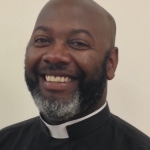
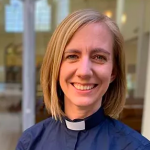
 As Christians around the world remember Jesus’ last supper, we are printing a reflection by Selina Stone (who co-ordinates our
As Christians around the world remember Jesus’ last supper, we are printing a reflection by Selina Stone (who co-ordinates our 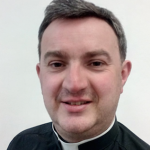 On Tuesday of Holy Week, our Director Angus Ritchie reflects on a pivotal event which we often overlook…
On Tuesday of Holy Week, our Director Angus Ritchie reflects on a pivotal event which we often overlook…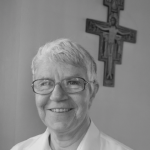 As Lent approaches, our Chaplain Sr Josephine Canny OA blogs on how our keeping of the season might relate to our care of God’s creation…
As Lent approaches, our Chaplain Sr Josephine Canny OA blogs on how our keeping of the season might relate to our care of God’s creation…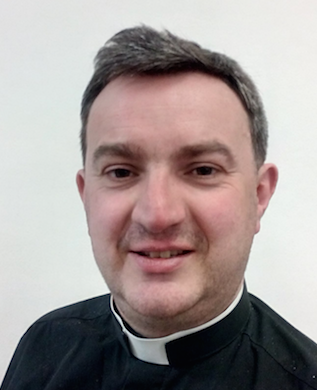





 .
.